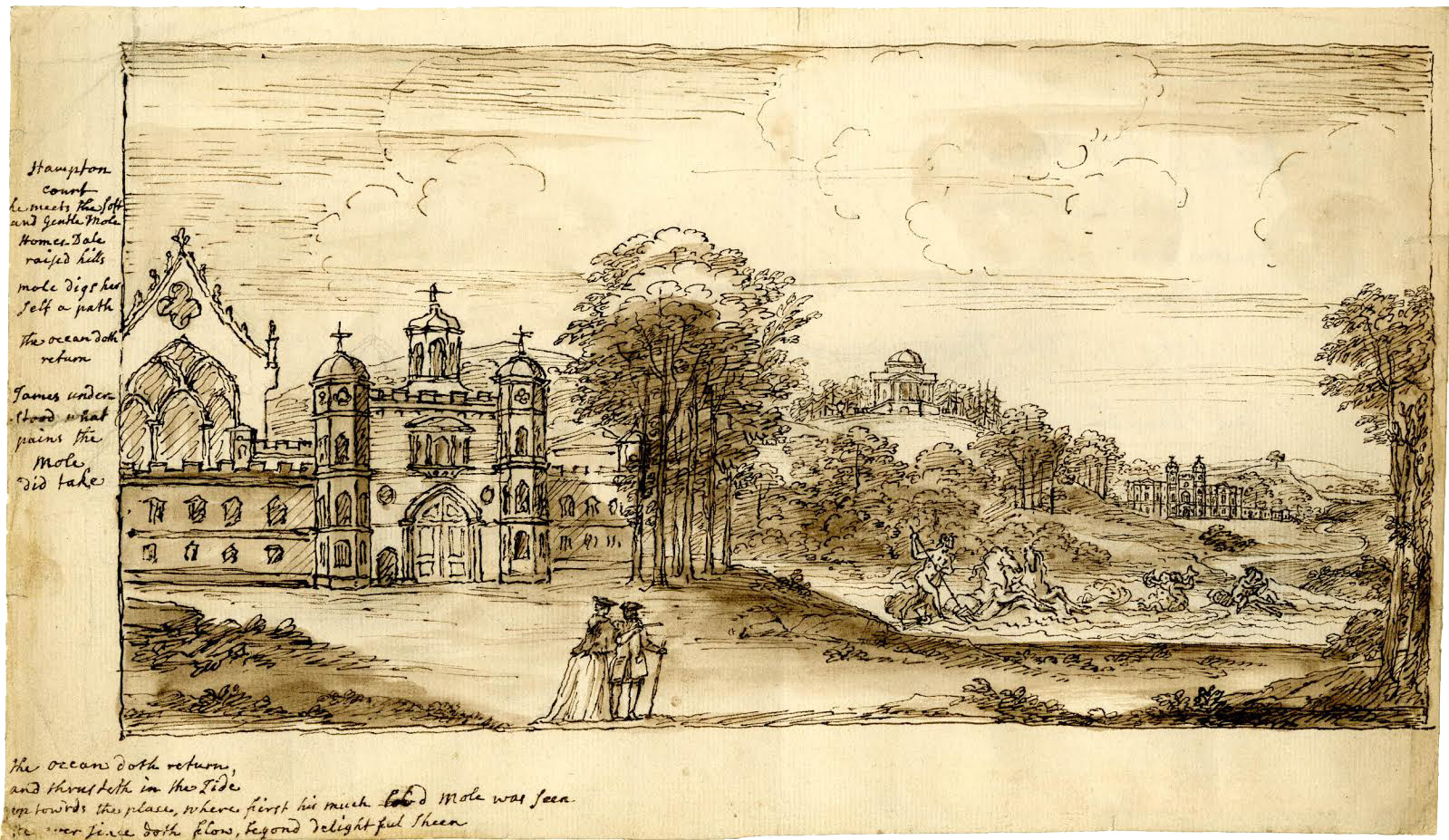 Lydia Godson
Lydia Godson
Nereid on the Thames
Song XVII, Poly-Olbion
Acrylic on board. 2015. Created at SENSS Ormerod Base, Marlborough School,
Woodstock for the HLF/AHRC funded Children’s Poly-Olbion project.
Based on lines in Song XVII of Poly-Olbion, describing the love of the tributary
River Mole for the Thames, against the wishes of parents on both sides.
This fanciful passage also inspired the architect and designer, William Kent, who sketched the Mole and her confluence with the Thames at Hampton Court, inscribing the Drayton’s lines at the edge of the page in brown ink (below):
Mole digs her selfe a Path, by working day and night
(According to her name, to shew her nature right)
And vnderneath the Earth, for three miles space doth creep:
Till gotten out of sight, quite from her mothers keep,
Her foreintended course the wanton Nymph doth run;
As longing to imbrace old Tame and Isis son.
When Tames now understood, what paines the Mole did take,
How farre the loving Nymph adventur’d for his sake;
Although with Medway matcht, yet never could remove
The often quickning sparks of his more ancient loue.
So that it comes to passe, when by great Natures guide
The Ocean doth returne, and thrusteth-in the Tide;
Up tow’rds the place, where first his much-lov’d Mole was seen,
He euer since doth flow, beyond delightfull Sheene.
Then Wandal commeth in, the Moles beloved mate,
So amiable, faire, so pure, so delicate,
So plump, so full, so fresh, her eyes so wondrous cleer:
And first vnto her Lord, at Wandsworth doth appeare,
That in the goodly Court, of their great soueraigne Tames,
There might no other speech be had amongst the Streames,
But only of this Nymph, sweet Wandal, what she wore;
Of her complection, grace, and how herselfe she bore.
But now this mighty Flood, vpon his voiage prest
(That found how with his strength, his beauties still increast,
From where, braue Windsor stood on tip-toe to behold
The faire and goodly Tames, so farre as ere he could,
With Kingly houses Crown’d, of more then earthly pride,
Vpon his either Banks, as he along doth glide)
With wonderfull delight, doth his long course pursue,
Where Orlands, Hampton Court, and Richmond he doth view.

